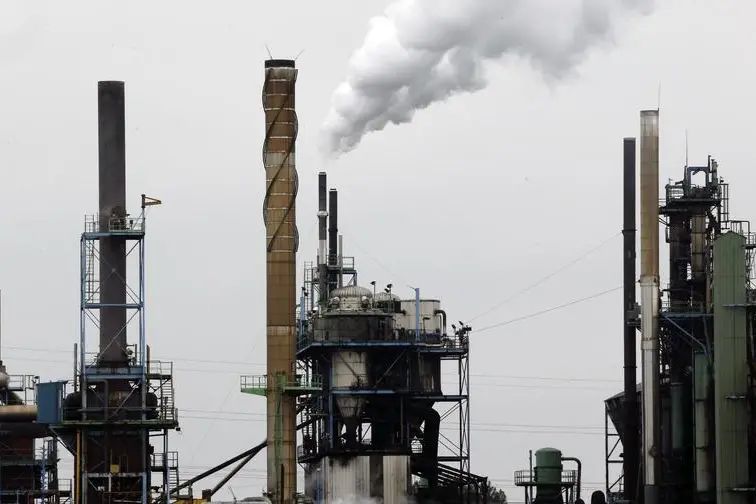PHOTO
AMMAN -- Jordan plans to provide factories with natural gas, which is much cheaper than heavy fuel and diesel, in order to increase their competitiveness, Prime Minister Abdullah Ensour said Tuesday.
Noting that the industrial sector consumes about 25 per cent of electricity generated in the Kingdom and about 20 per cent of overall energy resources, the premier said the liquefied natural gas (LNG) terminal in Aqaba will facilitate such a project.
Ensour made the remarks at the opening of the ENERGIZE Jordan 2015 conference, attended by more than 300 representatives of the energy and industrial sectors, and local and international experts.
"The LNG imports significantly reduced our energy spending. At present, about 85 per cent of the power generated in the Kingdom relies on LNG, and in the upcoming stage we will work on supplying natural gas to factories," Ensour said at the one-day event, held by the Jordan Chamber of Industry (JCI) in cooperation with the Energy Ministry, the German Development Agency and the USAID-Jordan Competitiveness Programme.
Highlighting that the high energy bill is one of the main issues facing the country, the premier said energy subsidies and spending increased the public debt by JD5.1 billion over the past five years.
Jordan's energy imports amounted to JD4.5 billion last year, representing 18 per cent of the country's gross domestic product.
Ensour underlined the need for industrial facilities to adopt energy-efficient solutions and projects to reduce their costs.
"We have an ambitious plan for the energy sector that will help boost the economy," he said, adding that renewable energy projects with total capacity of 1,500 megawatts will be operational by the end of 2018.
The government will also implement a series of projects to expand the grid's capacity to 5,000 megawatts at the end of 2018, which will help absorb more projects.
Adnan Abu Al Ragheb, first deputy chairman of the JCI, said adoption of renewable energy projects in the industrial sector will play a key role in reducing challenges.
"Such projects will significantly reduce costs for industrial facilities and make the sector more competitive, whether locally or internationally," Abu Al Ragheb added.
He also stressed the importance of promoting energy efficiency in the industrial sector.
Participants at the conference highlighted the pivotal role renewable energy projects play in sustainable development and preserving the environment.
They also discussed challenges hindering the adoption of these projects in the industrial sector.
© Jordan Times 2015





















